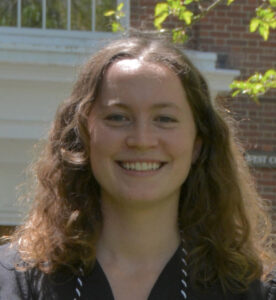 Jeremy D. Schmahmann, MD, FAAN, FANA, FANPA
Jeremy D. Schmahmann, MD, FAAN, FANA, FANPA
Jeremy Schmahmann is Professor of Neurology at Harvard Medical School, and Senior Clinical Neurologist at the Massachusetts General Hospital where he is Founding Director of the Ataxia Center, Director of the Laboratory for Neuroanatomy and Cerebellar Neurobiology, and a founding member of the Cognitive Behavioral Neurology Unit. Dr. Schmahmann received his medical degree with distinction at the University of Cape Town, completed residency in the Neurological Unit of the Boston City Hospital, and a postdoctoral fellowship with Professor Deepak Pandya in the Department of Anatomy and Neurobiology at Boston University School of Medicine. He is a Fellow of the American Academy of Neurology, American Neurological Association, and American Neuropsychiatric Association.
Dr. Schmahmann’s clinical and research efforts focus on the anatomical substrates of intellect and emotion, and the clinical neurology and basic science of the ataxias and other cerebellar disorders. He was awarded the Norman Geschwind Prize in 2000 from the American Academy of Neurology and the Behavioral Neurology Society for his pioneering work on the role of the cerebellum in cognition and emotion, and the description of the cerebellar cognitive affective syndrome and its neurobiological and theoretical underpinnings. He received the Distinguished Neurology Teacher Award from the American Neurological Association in 2008, and the Special Award for Sustained Excellence in Teaching in 2013 from Harvard Medical School. He is past president of the Boston Society of Neurology and Psychiatry and the American Neuropsychiatric Association, on the Executive of the Society for Research on the Cerebellum and Ataxias, and a member of the Medical and Scientific Research Advisory Board of the National Ataxia Foundation and the Clinical Research Consortium for the Study of Cerebellar Ataxias.
As the Founding Director of the MGH Ataxia Center, Dr. Schmahmann is recognized internationally as an expert on the cerebellum and anatomy of the brain. He pioneered the field of cerebellum and cognition, work for which he received the coveted Norman Geschwind Prize in Behavioral Neurology from the American Academy of Neurology and the Behavioral Neurology Society in 2000. His anatomical studies have also provided new insights into the anatomy and function of the cerebral white matter in monkey and human (that allows different brain regions to communicate with each other), work that won the 2006 prize for the Best Publication in Medical Science from the American Association of Publishers. His studies have advanced the understanding of the anatomy and diseases of the cerebellum, neuropsychiatric disorders such as schizophrenia and autism, and the effects of damage to the white matter of the brain in diseases including traumatic brain injury, multiple sclerosis, Alzheimer’s disease, and depression. Dr. Schmahmann has been voted into Best Doctors in America since 1998. He is the medical advisor to the New England chapter of the National Ataxia Foundation, and a member of the NAF scientific advisory board.
Dr. Schmahmann’s publications can be found here.
Contact info: 617-726-3216 | jschmahmann@mgh.harvard.edu
MGH Ataxia Center Team
 Christopher Stephen, MBChB
Christopher Stephen, MBChB
Dr. Christopher Stephen received his medical degree from the University of Aberdeen (Scotland) School of Medicine, interned in medicine, surgery, and neurology at the University of Edinburgh and Nottingham University Hospitals, and latterly a registrar in neurology at the University of Cambridge, UK before training in internal medicine and neurology at the Beth-Israel Deaconess Medical Center in Boston. After completing a fellowship in movement disorders, he joined the Ataxia Unit as a Fellow in 2014, and the faculty of the MGH and the Ataxia Unit in 2016. He is also a Harvard School of Public Health trained epidemiologist.
Dr. Stephen is a superb addition to the Ataxia Unit and the Schmahmann Lab. His clinical interests are perfectly suited to the overlap of ataxias, dystonia, and cognitive neurology. He is actively engaged in research in rare movement disorders, including rare metabolic ataxias such as Late-Onset GM2 gangliosidosis, clinical studies in the spinocerebellar ataxias and multiple system atrophy of the cerebellar type, and has been deeply involved in clinical trials in ataxia. He has also been involved in global health, frequently travelling to the Philippines performing clinical research in the rare genetic disorder of X-linked Dystonia Parkinsonism, and in studying the motor control aspects of dystonia and parkinsonism and their overlap. He is a member of steering committee of the Movement Disorders Society Ataxia and Rare Movement Disorders Study Groups. He is also a musician and treats musician patients at the Brigham and Women’s Hospital Performing Arts Clinic, where he has a special interest in treatment and clinical research in musician’s dystonia.
 Anoopum Gupta, MD, PhD
Anoopum Gupta, MD, PhD
Anoopum Gupta is a Mass General Brigham-trained ataxia and movement disorders neurologist and has outpatient practices caring for individuals with cerebellar ataxias, Parkinson disease, atypical parkinsonian syndromes, and Huntington disease. He also has formal training in artificial intelligence and machine learning from the Robotics Institute at Carnegie Mellon University. Dr. Gupta leads a research group that uses digital technologies combined with signal processing and machine learning methods to identify patterns in motor and cognitive behavior that have the potential to transform clinical research and clinical care for individuals suffering from neurological diseases. His work is supported by awards from the NIH, industry, and disease foundations, and technologies created in his lab are currently in use in interventional trials in ataxias and ALS. The overall mission of his group is to accelerate the development of disease modifying therapies by improving the diagnosis, stratification, and assessment of neurodegenerative diseases.
Laboratory for Deep Neurophenotyping
Chih-Chun (Charles) Lin, MD, PhD
Lina Diaz, Patient Services Coordinator
Contact info: 617-726-2273
Sandra Gailius-Garman, Advanced Practice Registered Nurse
 Jin Yun (Helen) Chen, LGC (Genetics Counselor)
Jin Yun (Helen) Chen, LGC (Genetics Counselor)
Jin Yun (Helen) Chen is a certified genetic counselor working in the Department of Neurology at the Massachusetts General Brigham. She provides genetic counseling services to both pediatric and adult neurogenetic populations, with specialization in neurodevelopmental disorder, neurodegenerative and hereditary ataxias. Prior to this, she worked as a laboratory genetic counselor in the Division of Genomic Diagnostic at the Children’s Hospital of Philadelphia, where she gained expertise in variants analysis and report interpretation for both sequence variants and copy number alterations, as well as utilized clinical expertise to perform clinical correlation for report interpretation and generation. She received her master’s degree in Genetic Counseling from Brandeis University. She is also the recipient for “The 2019 ACMG Foundation Carolyn Mills Lovell Genetic Counselor Award.
Rotating Fellows (2024-2025)
Ataxia Center Fellow
Franziska Hoche, MD
Advanced General and Infections Disease Neurology (AGAIN)
Alexander Carvajal Gonzalez, MD, PhD
Emily White, MD
Alalya Alsabah, MD
Neuropsychiatry / Behavioral neurology
Laura Duque Serrano, MD
Nikita Jain, MD
Movement Disorders Unit
Catherine Isroff, MD
The Schmahmann Lab Team
Jason MacMore, Clinical Research Project Manager
Jason received his BA from Boston University and came to the Schmahmann lab as a research assistant in 2002. He has worked in every aspect of the lab program over the years, from training monkeys in the lab’s collaboration with the Boston University Department of Anatomy and Neurobiology, to charting sections of anatomical specimens in the study of corticopontine projections, and more recently in the recruitment and testing of research and clinical subjects for the range of studies on cognition and emotion in cerebellar disorders. Jason continues to be an indispensable and key member of the MGH Ataxia Center and the Laboratory for Neuroanatomy and Cerebellar Neurobiology. Since he joined the lab in 2002, he has grown into a role that has now reached national prominence, as he works with individuals across the country in the natural history studies and in clinical trials. He supervises the research coordinators, takes care of the extensive IRB (Institutional Review Board) documentation for our projects, liaises with the necessary individuals in clinical trials, and with the members of the research community with whom we collaborate.
Jason’s publications can be found here.
Contact info: 617-726-5060 | jmacmore@mgh.harvard.edu
 Maia Hirsch, Clinical Research Coordinator
Maia Hirsch, Clinical Research Coordinator
Maia is a clinical research coordinator who graduated in May 2023 from Bowdoin College with a BS in Neuroscience and Sociology. Her research interests include neuropsychology, public health, and understanding changes in cognition that come with age. In the Ataxia Center, Maia is heading a study comparing the effectiveness of the CCAS scale as a screening tool for early cognitive impairment compared to current clinical scales in addition to working on the National Ataxia Foundation’s SCA natural history study. When not working, Maia enjoys hiking, reading, and crocheting.
Contact info: 617-726-4942 | mhirsch4@mgh.harvard.edu
Anna Burt, Clinical Research Coordinator
Anna is a clinical research coordinator who graduated in May 2023 from Harvard College with an A.B. in Neuroscience and secondary field (minor) in Mind Brain Behavior. Her 1-year longitudinal study of ataxia progression via the Patient-Reported Outcome Measure of Ataxia (PROM-Ataxia) has recently been submitted for publication in Brain. Her research interests include exploring the underpinnings of cognition and neuropsychiatry, particularly in relation to neurological disease, and study of the neuroscience and philosophy of consciousness. Anna is currently heading a study aiming to validate the Cerebellar Neuropsychiatric Rating Scale (CNRS) and is preparing for an upcoming 5-year project to longitudinally validate the PROM-Ataxia. When not working, Anna is a runner and cyclist, and enjoys painting and attending music concerts in Boston.
Contact info: 617-726-2476 | aburt2@mgh.harvard.edu
 Franziska Hoche, MD
Franziska Hoche, MD
Dr. Franziska Hoche (M.D.), a postdoctoral investigator and pediatric neurology resident joined the lab in 2012 having received cerebellar research scholarships from the German Neuropediatric Society and the Dr. Senckenberg’ Society Frankfurt.
Dr. Hoche received her M.D. at the Goethe – University in Frankfurt, Germany, where she finished her doctoral thesis on neurodegeneration of auditory brainstem nuclei and fibre tracts in Spinocerebellar Ataxia Type 2, Type 3 and Type 7 (SCA2, SCA3, SCA7) at the lab of Professor Udo Rüb and Professor Horst Werner Korf at the Dr. Senckenberg’ Institute of Chronomedicine.
Her research focuses on the understanding of influences and contributors to motor and cognitive dysfunctions in cerebellar disorders of childhood and adulthood. She uses both tools of classic clinical neurology, developmental psychology, neuropsychology and cognitive neuroscience as well as neuroimaging techniques to search for interactions, concepts, maps and analogies of how cognition and behavior are affected in children and adults with cerebellar diseases.
Dr. Hoche has a special interest in the neurodegenerative and cognitive pattern of a hereditary cerebellar diseases of childhood and she is one of few international physician scientist experts in the neurocognitive profile of Ataxia-telangiectasia (AT).
Her research projects in the Schmahmann Lab include evaluation of cognitive and behavioral changes and the cerebellar cognitive affective syndrome (CCAS) in adult ataxic patients and pediatric patients with Ataxia-telangiectasia (AT), as well as the development of a pediatric ataxia rating scale.
Dr. Hoche’s publications can be found here.
Clinical and Research Collaborators
Our ability to bring the best possible diagnostic accuracy and provide the most compassionate comprehensive care to patients in the MGH Ataxia Unit, and our advances in the lab, are interwoven with the collaborative efforts of a number of superbly talented people. We find these in the MGH system, in hospitals, academic institutions and research labs in the greater Boston area, around the country, and internationally. Here are some of the institutions and people who work with us to accomplish our goals.
MassGeneral Institute for Neurodegenerative Disease (MIND)
Athinoula A. Martinos Center for Biomedical Imaging
Lilla Zollei, PhD
Eva Ratai, PhD
Hui Wang, PhD
Van Wedeen, MD
Andre van der Kouwe, PhD
Boston University School of Medicine
Doug Rosene, PhD
Brigham and Women’s Hospital
Vikram Khurana, MD, PhD
The McGovern Institute at Massachusetts Institute of Technology
John Gabrieli, PhD
Spaulding Rehabilitation Hospital
Massachusetts Eye and Ear Infirmary
Monash University (Melbourne, Australia)
Ian Harding, PhD
Louisa Selvadurai, Doctor of Psychology
McGill University
Bernard Brais, MDCM, PhD
David Pellerin, MD
Where are they now?
Lab position / Post-lab position
Marygrace Neal
Patient Services Coordinator / Living the good life in retirement after 20+ years with the MGH Ataxia Center
Catherine Stoodley, B.S., M.S., D.Phil.
Postdoctoral research fellow / Research Faculty – Developing Brain Institute at Children’s National Hospital
Laura Horton, MD
Clinical Research Coordinator / Internist – Granite State Gastroenterology
Xavier Guell, MD, PhD
Medical Student / Movement Disorders fellow at NYU Langone Health
Samantha Pierce, MD
Clinical Research Coordinator / Anesthesiology Resident – Baystate Health (U-Mass Chan Medical School)
Colin Villarin
Clinical Research Coordinator / Medical StudentUniversity of Pennsylvania School of Medicine
Brigitte Jacoby
Clinical Research Coordinator / Physician Associate (PA) student – Johnson & Wales University
Miranda Mize
Clinical Research Coordinator / Medical Student – Washington University in St. Louis, School of Medicine (2023 Distinguished Student Scholar)
James Concepcion
Clinical Research Coordinator / Medical Student – Frank H. Netter MD School of Medicine, Quinnipiac University
